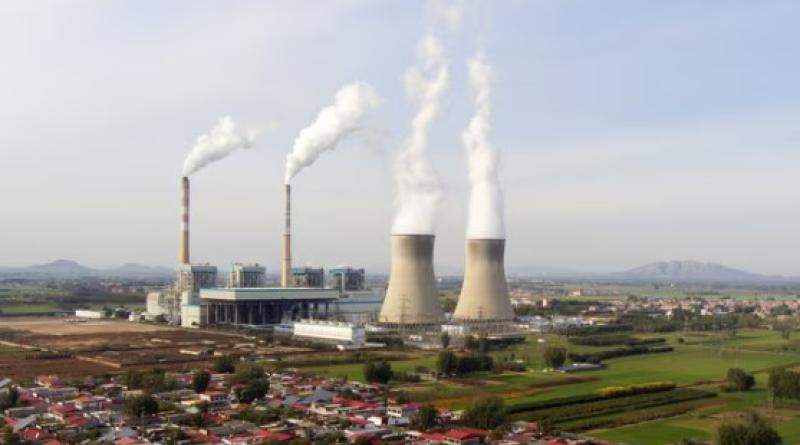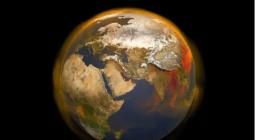The past years were the hottest on record. Yet we’re on track to burn more fossil fuels

A new report says many countries are increasing their oil and gas production. Delegates to Cop28 must confront this crisis
Let me see if I have this right.
A vast majority of the world’s best climate scientists have told us again and again that to maintain a stable and liveable planet, we, the human race, must reduce the burning of fossil fuels – and emissions of greenhouse gases – by half by 2030. And end emissions altogether by 2050. Knowing this, what are we on track to do?
Just the opposite. According to a new United Nations-backed report, many countries – Russia, Saudi Arabia, the US and others – will increase coal, oil and gas production. So much so that by 2030 humans worldwide will burn more fossil fuels (and load our atmosphere with more greenhouse gas emissions) than at any time in our history.
Unless we turn things around, and soon, this could be our greatest failure: how a single intelligent species abandoned its better, wiser self and destroyed its own home.
It’s not the first time we’ve imperiled our global wellbeing. Consider thermonuclear war. But while it requires an overt act of aggression, the climate crisis (and yes, a growing number of scientists now say it’s a full-on crisis) requires only business as usual. Profit over planet; competition over cooperation. It’s been going on for a long time, but now, with 8 billion of us hustling, bustling, coming and going, it’s beginning to cost us dearly.
If structural engineers said a bridge was unsafe, would we cross it? Some crazy guy might try, but would we let him take the grandkids in the back seat? No.
And yet here we are, extracting and burning dirty fossil fuels, gambling not with a bridge but with our own planet, putting at risk the future of every child and those yet to be born. “Heat lowers children’s test scores and raises the risk of miscarriage in pregnant women,” Jeff Goodell writes in his bestselling book The Heat Will Kill You First. “Prolonged exposure increases death rates from heart and kidney disease. When people are stressed by heat, they are more impulsive and prone to conflict …”
The eight hottest years on record have been the last eight, and this past summer probably saw the hottest days on Earth in the past 125,000 years (determined from satellite data and isotopic analyses of lakebed sediments and ice cores). Researchers at Dartmouth College estimate that extreme heat – intensified by anthropogenic (human-caused) climate change – cost the global economy $16tn over 20 years.
This heat, plus droughts, fires, floods and sea level rise with its ensuing civil strife (war, famine, etc) prompted the secretary of defense, Lloyd Austin, to write in 2021 that the climate crisis has “contributed to instability around the world … and will continue to have worsening implications for US national security”.
Feasting this whole time is the insatiable fossil fuel industry and its attendant rightwing thinktanks, politicians, media outlets and major banks determined to make huge amounts of money and sow doubt about climate science – a playbook taken from big tobacco’s cigarettes-are-not-dangerous-to-your-health campaign.
So … are we toast? Perhaps. Scholars often say that Americans living in the year 1870 had no idea what the world would be like in 1900. And for those living in 1900, the same for 1930. And so on every 30 years. Over and over, the future was beyond the everyday imagination, in part because American creativity, ingenuity and hard work kept making our world anew. How then will things look in 2050? We don’t know.
The accelerating rise of renewable energy could surprise us all, as anything that increases exponentially has outrageous potential. (Compare the automobile in 1900 and 1930.) As the cost of renewables trends down, and cost of oil trends up, what’s bound to happen? Who owns the future? According to the Rocky Mountain Institute, sudden “turning points” make big oil highly vulnerable, comparable to empires that “spend centuries in expansion, only to collapse in a few years”.
In short, things can change suddenly. And need to.
People ask: “What can I do?” For starters, vote blue. The Democratic party is not perfect on climate legislation, but after a careful state-by-state analysis, the journalist David Roberts, writing for Vox, discovered that when Democrats “take control in numbers that preclude Republican veto power, they pass thoughtful, ambitious policies to reduce greenhouse gas emissions and accelerate the clean energy transition”.
The Republican party, in stark contrast, is a train wreck: the only major political party in the developed world that for decades has denied – or danced awkwardly around – the science of climate change. As for 2025, if re-elected, Donald Trump would gut the Environmental Protection Agency, give polluters free license, and be a disaster for both US democracy and for every citizen’s air and water.
Later this month, on 30 November, delegates from around the world will meet in Dubai for Cop28, another international climate conference like so many before. The United Nations secretary general, António Guterres, says the conference “must send a clear signal that the fossil fuel age is out of gas – that its end is inevitable. We need credible commitments to ramp up renewables, phase out fossil fuels, and boost energy efficiency, while ensuring a just, equitable transition.”
Even if we stopped burning all fossil fuels tomorrow, temperatures would continue to rise, given the persistence of greenhouse gases already in our atmosphere. It’s going to be a rough ride. But not everything is certain, and within this uncertainty lies possibility and hope. Dirty fossil fuels are here to stay – until we make them obsolete. Our climate crisis is a massive challenge we must confront with all the commitment, cooperation and creativity we can assemble.
“Anything else you’re interested in,” the astrophysicist Carl Sagan reminded us, “is not going to happen if you can’t breathe the air and drink the water. Don’t sit this one out. Do something. You are by accident of fate alive at an absolutely critical moment in the history of the planet.”
-
A former ranger with the National Park Service, Kim Heacox is the author of many books, most recently On Heaven’s Hill, a novel about war veterans and schoolchildren who form an unlikely alliance to defend a pack of wolves. He lives in Alaska
Photograph: Ng Han Guan/AP





